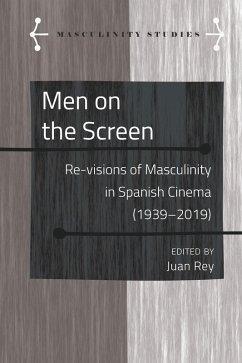
Making the Best of a Bad Job (eBook, ePUB)
Representations of Disability, Gender and Old Age in the Novels of Samuel Beckett
Versandkostenfrei!
Sofort per Download lieferbar
Statt: 94,30 €**
76,95 €
inkl. MwSt.
**Preis der gedruckten Ausgabe (Gebundenes Buch)
Alle Infos zum eBook verschenkenWeitere Ausgaben:

PAYBACK Punkte
38 °P sammeln!
This book explores the representations of disability, gender and old age in the novels of Samuel Beckett. His works go against the foundations of Western thought, which has been traditionally focused on success, clarity, learning and ability, while Beckett chose to focus on failure, confusion, decay and impotence. This study purports to show the central importance of the three categories chosen for the general understanding of the writer's work. It constitutes an attempt to provide a gendered interpretation of Beckett's protagonists, who are increasingly unable to reason, talk or move properly...
This book explores the representations of disability, gender and old age in the novels of Samuel Beckett. His works go against the foundations of Western thought, which has been traditionally focused on success, clarity, learning and ability, while Beckett chose to focus on failure, confusion, decay and impotence. This study purports to show the central importance of the three categories chosen for the general understanding of the writer's work. It constitutes an attempt to provide a gendered interpretation of Beckett's protagonists, who are increasingly unable to reason, talk or move properly, extremely old and do not fit hegemonic models of masculinity. Beckett, who denies his own ability as an author to understand and explain a chaotic world, chooses these disabled, old men as the ultimate representatives of the human condition and the best models to transmit his worldview. This is a book combining different perspectives and getting to conclusions regarding power structures which are particularly interesting for researchers or students taking courses on the dialectics of alterity, masculinities studies or new readings of Samuel Beckett's works. The author's research is based on the main arguments of feminist thought, masculinities studies, disability studies, ageing studies and recent work on Beckett. The ultimate goal of such interdisciplinary approach is to show how different systems of oppression work in similar ways and to draw the political implications of Beckett's literary choices, in terms of visibility and solidarity.
Dieser Download kann aus rechtlichen Gründen nur mit Rechnungsadresse in A, D ausgeliefert werden.













